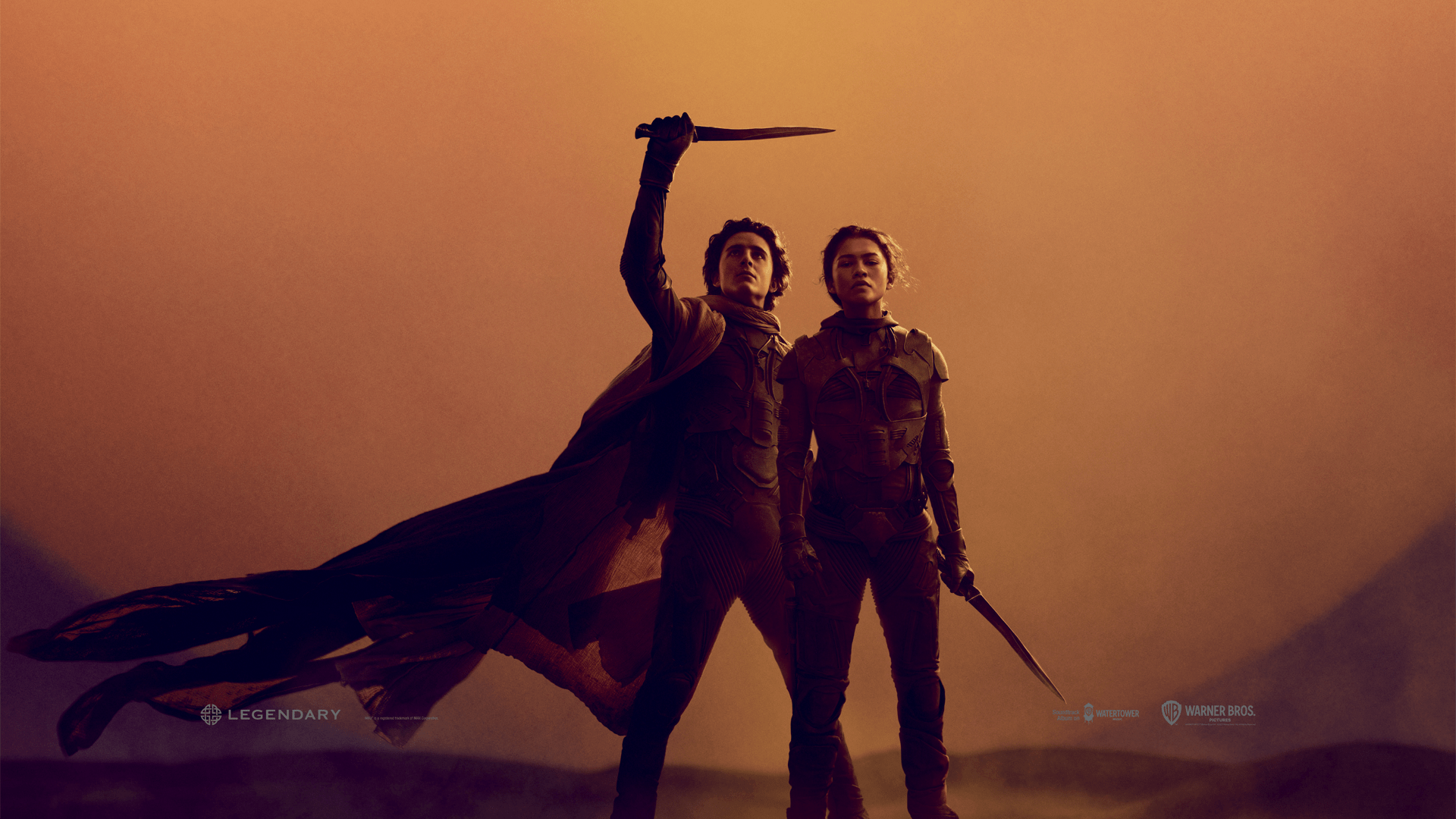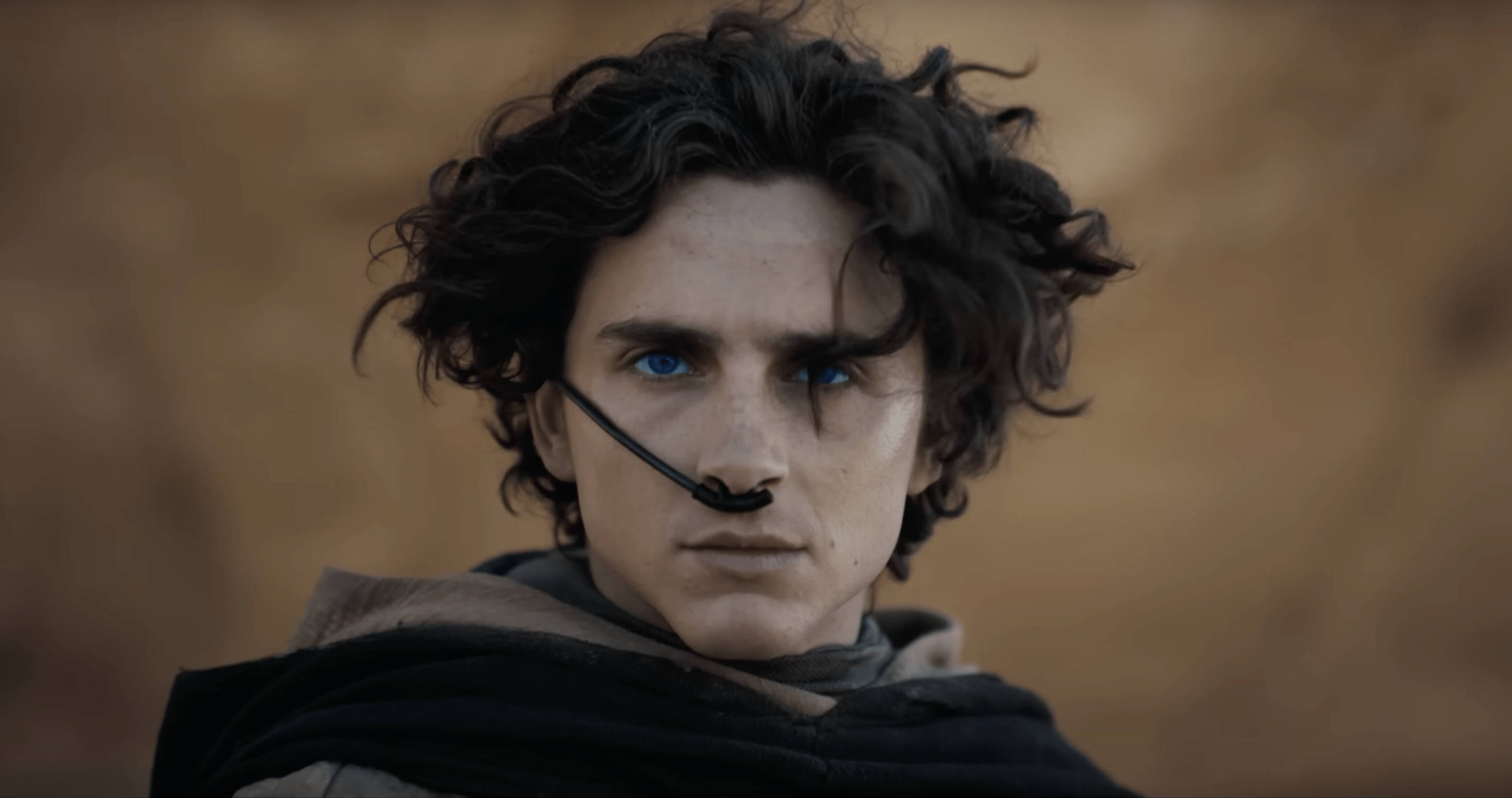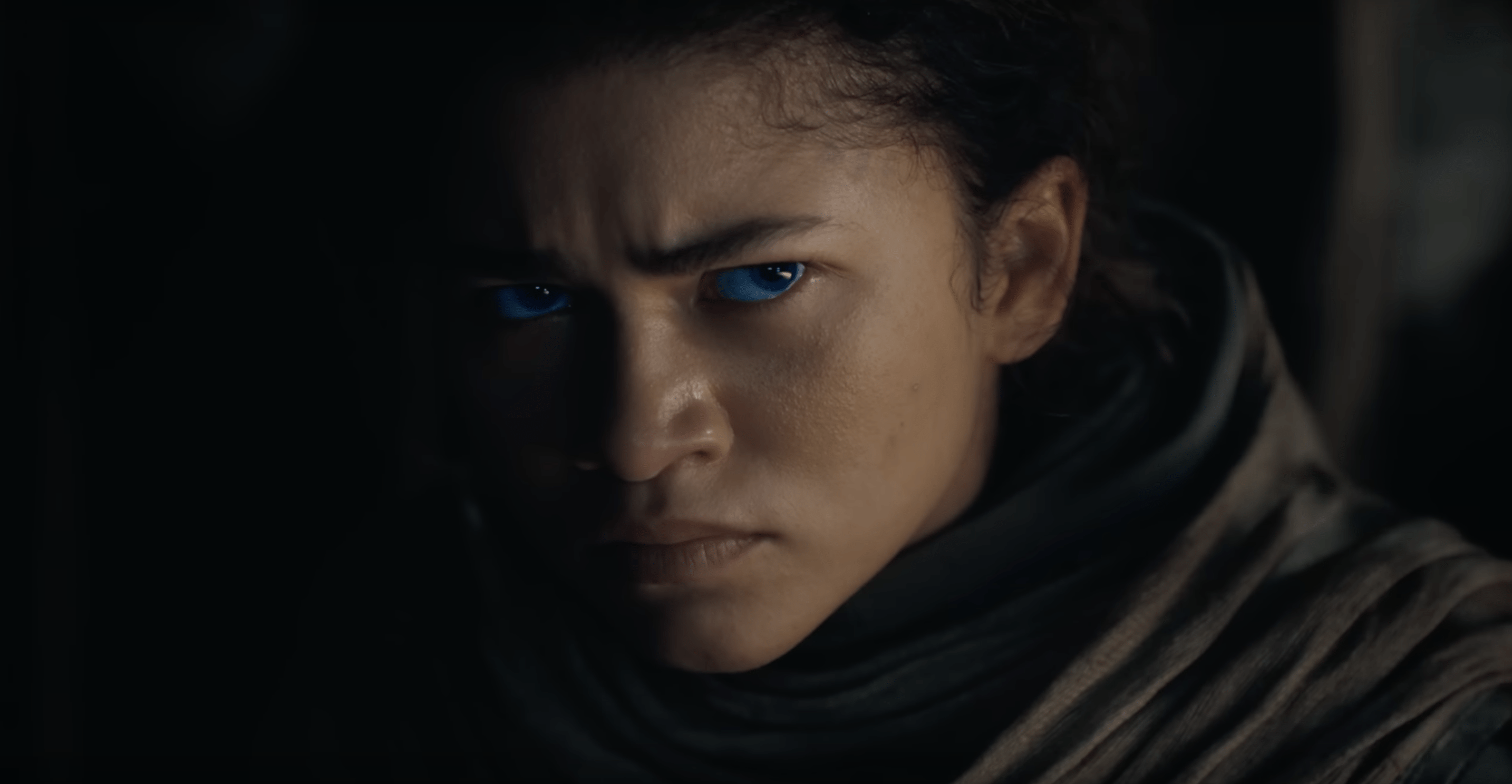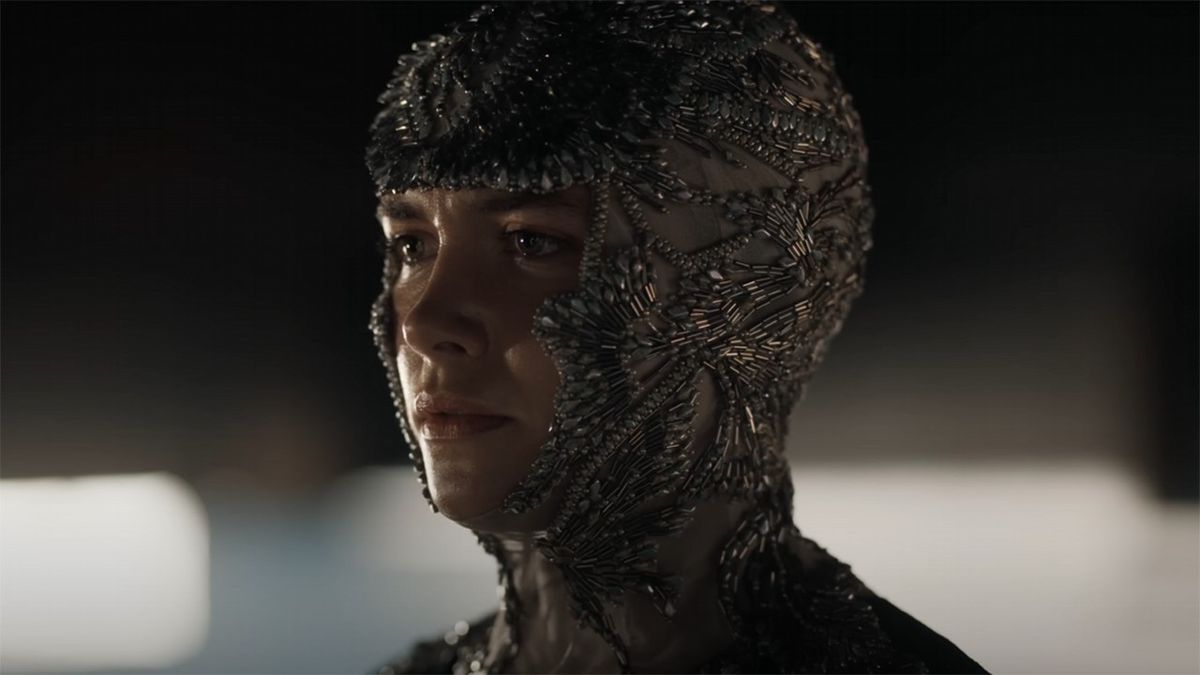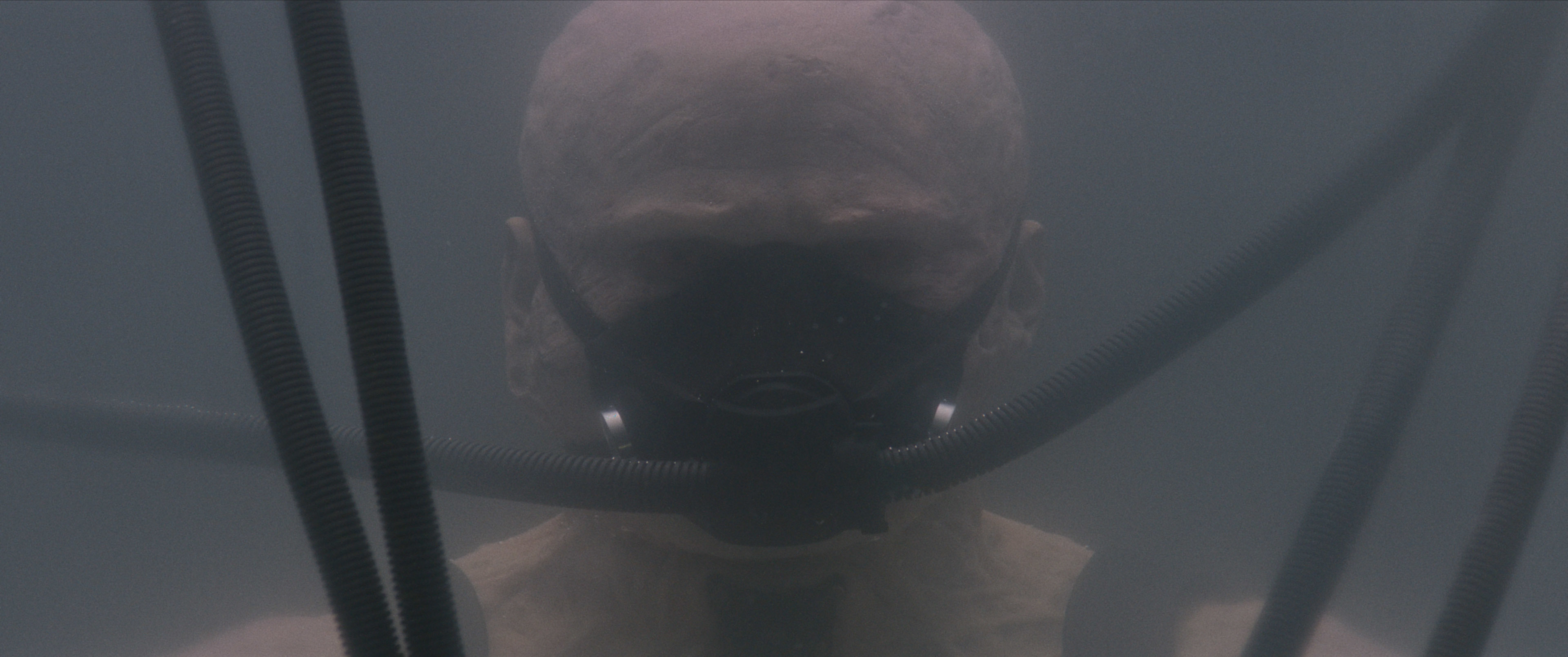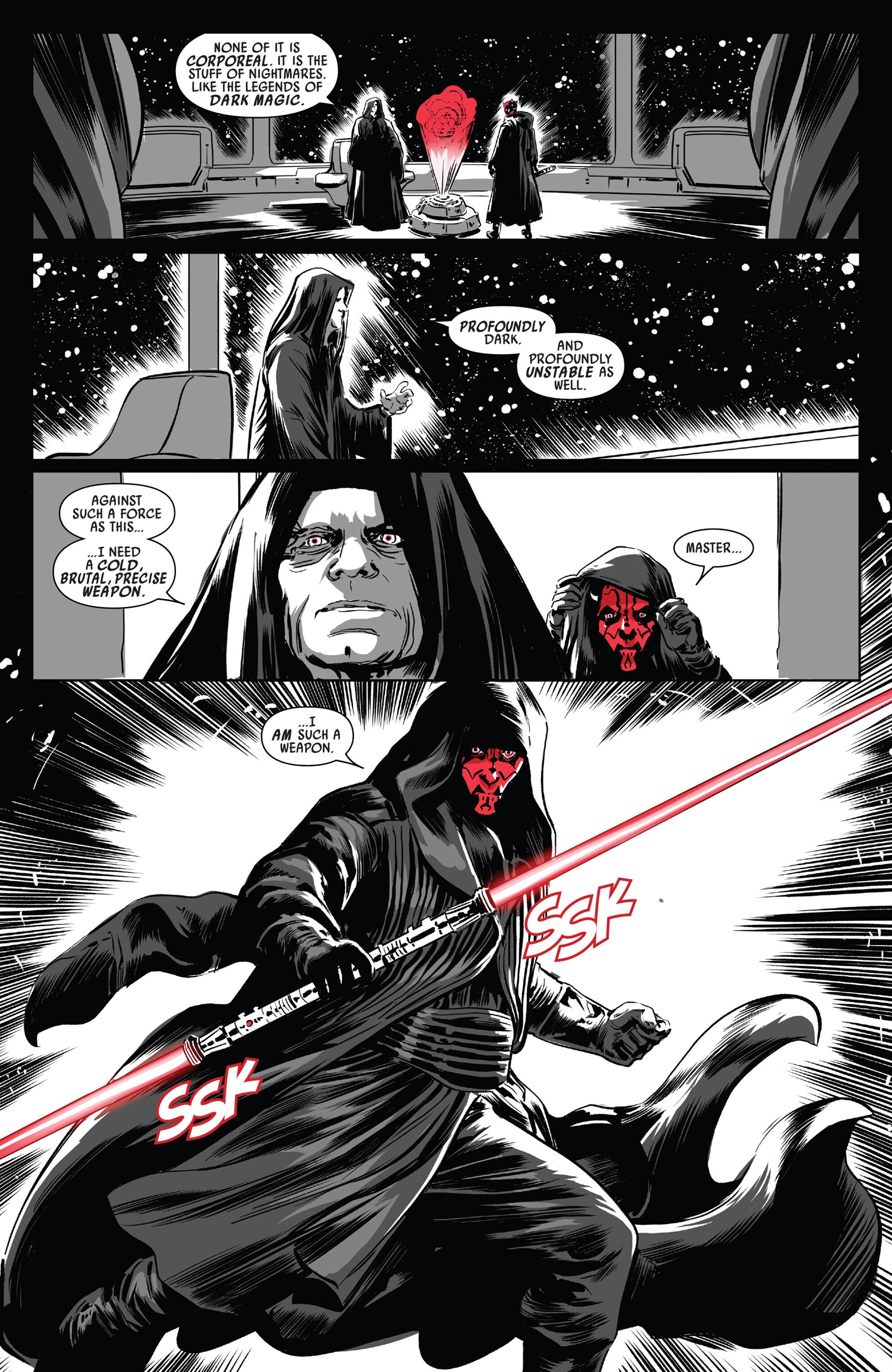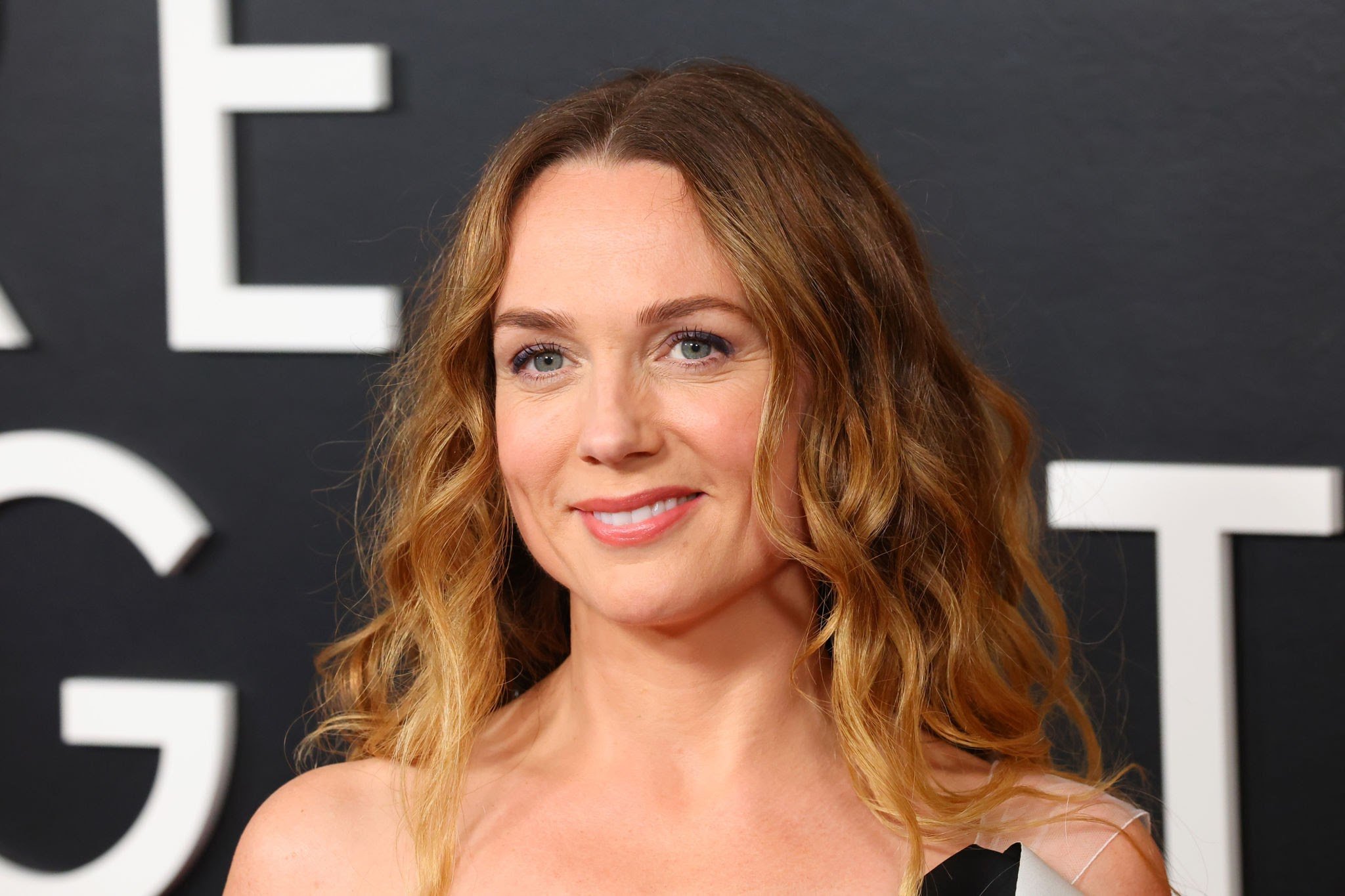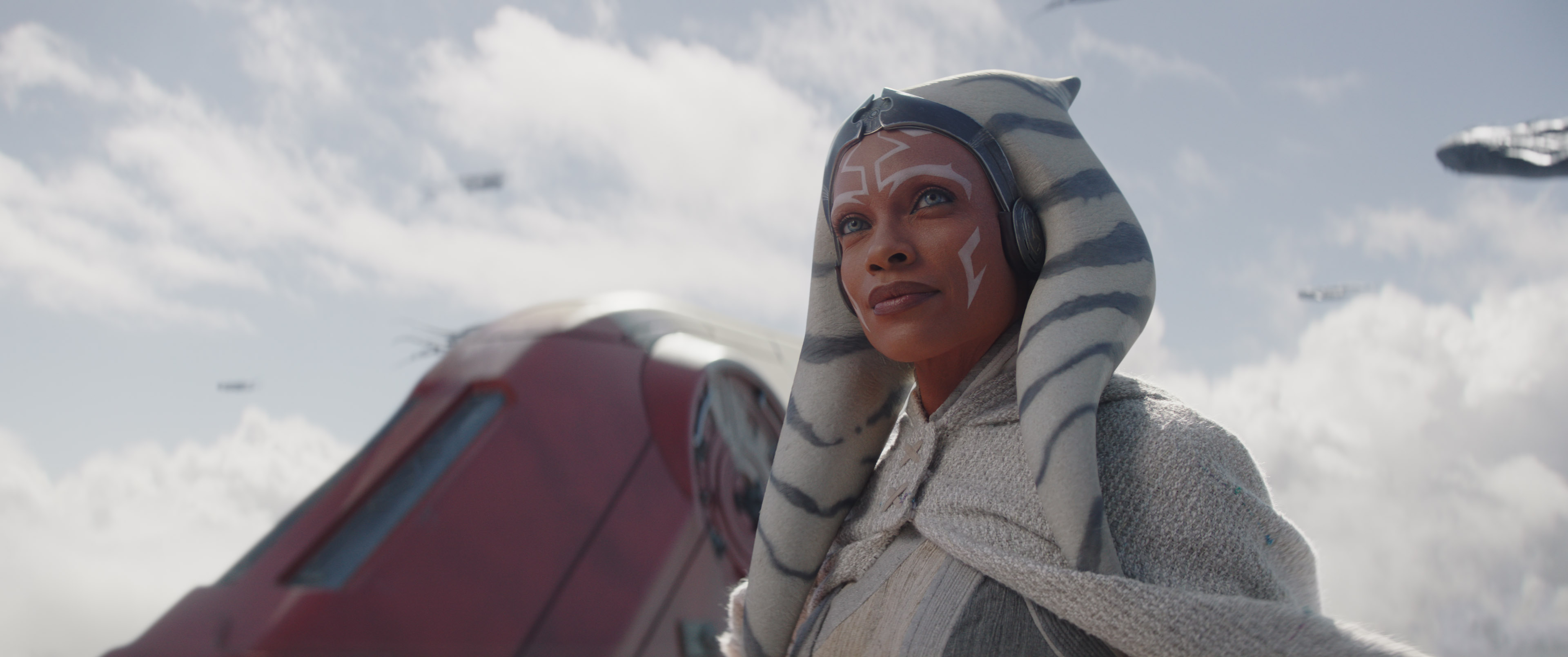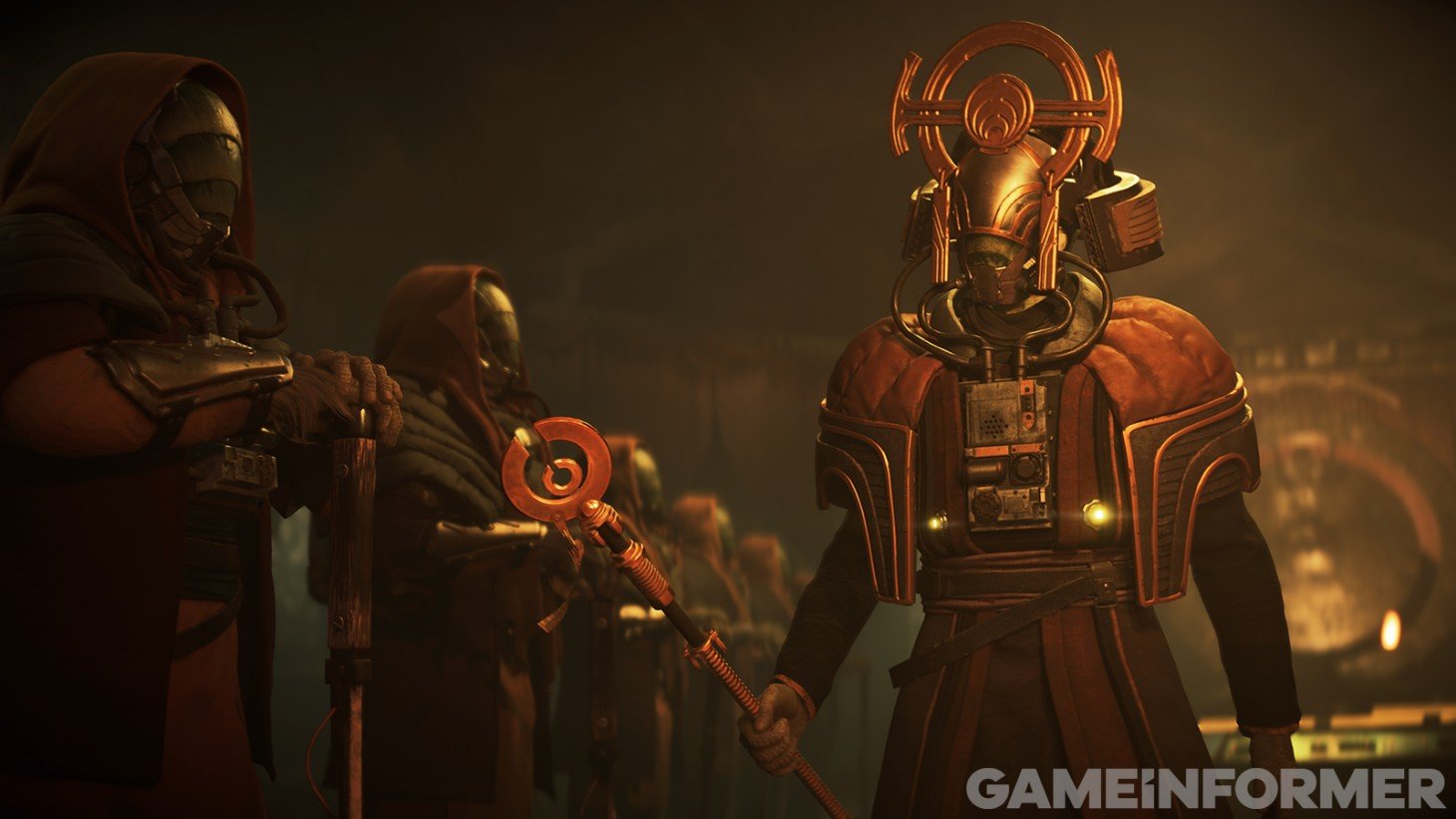‘Dune: Part Two’ Review – Denis Villeneuve Doubles Down on Scope, Emotion, and Quality
To say that Dune: Part Two is much better than the first one would be an understatement. After a rewatch at home, where the theatrics of the big-screen capturing of the endless desert and the jaw-dropping production design take a backseat to the story, the first one turned out to be a bit thinner than I already thought it was. But Dune: Part One had to crawl so Part Two could fly at lightspeed.
The second film is not only a direct continuation, but also an explanation of why the previous one existed in the first place. Denis Villeneuve is back as co-writer (with Jon Spaihts) and director, as well as overall architect of this overwhelming phenomenon that makes the 1965 source material it’s based on feel like it was written about the world in 2024. It’s not only a perfect combination of an original novel that feels timeless, but also a director’s capability of exploiting those qualities and amplifying them — also, relevant world events also feel even more resonant given the film’s war and religious themes.
If the first film ended with Paul Atreides (Timothée Chalamet) realizing he’d now have to step up and become the man his father believed he was destined to be, in the second film he’ll have to come to terms with becoming the man a whole community of people are convinced he was predicted to become. The effort is led by Javier Bardem‘s Stilgar, who is pretty much on a different movie than the rest of the main characters and who doesn’t hide his conviction that Paul is the Lisan al Gaib, The Voice from the Outer World, who will free the Fremen once and for all and restore Arrakis to its only-dreamed-of glory; and Lady Jessica (Rebecca Ferguson), who leans into the really dark side of her sisterhood to worrying lengths.
It is a rather interesting exploration of the religious thematic strokes explored within the movie. Stilger represents the optimistic side of fanatism, which involves giving hope to those who have lost it or never found it. The problem here is that Bardem is almost playing it for laughs, which can get distracting at times. Meanwhile, Jessica exploits that fanatism to push her agenda, a much darker side of religion that gets a rather fair and scary treatment. All of this pays off one of the most intriguing scenes from the first movie, the nightmare that woke Paul up dripping in sweat inside the tent towards the end of the first movie.
These are dreams that get more frequent as Part Two goes on and Paul gets near his destiny. But what is he set to become? A liberator or a much more ruthless enslavor? That is the question that haunts him for the entire duration of the second film, and which made his transformation into the Messiah he’s been predicted all the more unsettling. This added nuance also made for a much more layered performance by Timothée Chalamet, who pretty much slept through the first movie. If Wonka, as much as I enjoyed it, felt like Chalamet playing Willy Wonka, in Dune: Part Two I stopped seeing the actor by the end of the first act.
However, there are two performances in this movie that tower over everyone else’s. Both of them also go beyond the “I no longer saw the actor, only the character” mantra. First, we have Zendaya as Chani, the mysterious Fremen from the first movie we know is destined to become one with Paul. Their relationship is, of the many things that make the movie feel like a can’t-miss experience, the element that powered the story from beginning to end and made it feel all the more tragic, but also so much more approachable. It is the pumping heart of the story, and Zendaya plays the part to perfection, and then some. Arguably, her best performance to date, and if anything, I would have liked to see a lot more from her point of view.
The other great performance in the film comes from Austin Butler, who is 2/2 so far this year. Starring as Feyd-Rautha, one of three major additions to the sequel, he goes all-in and delivers a psychotic performance that makes for an unforgettable villain. He’s Baron Harkonnen’s (Stellan Skarsgård) only hope for victory over Arrakis in the wake of Fremen attacks on their spice collections. Rabban (Dave Bautista) isn’t quite accomplishing what he was asked to do (shocker!), so the Baron must call his nephew. And though his time is short on the screen, he makes every second count.
This is also the case for the other two major new characters, Florence Pugh‘s Princess Irulan and Christopher Walken‘s Emperor. The script is not too kind with their screen time — so much so that they are not even referred to by their names. However, would I complain that we didn’t have enough from the Princess had they cast anyone else in the role? Probably not, which is a great test for the narrative making a perfect use of its characters to tell a much larger story. It feels like a bit of a waste of Pugh’s talent, yet would I rewrite the movie to give her more to do? Not really. I just can’t wait for the threequel, when she’ll inevitably have so much more material to work with.
If the first movie already hinted at some of the global warming/apocalyptic themes present in the movie, Dune: Part Two doubles down on that, siding with the Rebel Alliance in the wake of a brutalist, capitalist regime — but also warning about the dangers of putting all your eggs in one basket and telling that basket how precious she is. The message resonated much louder this time, and if this, combined with James Cameron’s Avatar movies, cannot convince the masses that our planet, and thus our civilization, is on the edge of collapse, I don’t know what will.
Greig Fraser‘s cinematography and Hans Zimmer‘s score, once again, take over the whole movie. The two of them are, alone, enough of an explanation as to why you should see this on a big screen. However, if I were to highlight a technical element of the movie that stood above everything else, that would be the editing. Joe Walker, showing even superior skills to those that earned him the Oscar for the first movie, is able to make Dune: Part Two‘s 166-minute runtime feel both fast-paced but also slow enough to capture the intimacy of its most poignant moments. Walker is able to press fast-forward when Villeneuve needs him to, and to slow down when Zendaya and Chalamet ask him to.
In a move reminiscent of what Peter Jackson did in The Lord of the Rings, Villeneuve is able to immerse us into this world. He didn’t do it by himself, of course, but it’s hard to argue with this being his best work as a director yet (even if I still hold Blade Runner 2049 as a near-perfect movie, and his best so far). Dune: Part Two may have more action than the first, but I’d hardly catalog it as an action movie. The duration of the battles is rather short when compared to other entries in the genre, and it’s so much better for it too. There’s already a bit of a tone clash with Javier Bardem’s jokey character, we didn’t need this climate change cry for help to get into the pew-pew. That’s not what Dune is, and the fact that Villeneuve might make such an intellectual movie into a worldwide blockbuster while not losing sight of the core fundamental elements simply astonishes me.
There is simply no other way to describe Dune: Part Two than an epic cinematic achievement. It may have some shortcomings, as I’ve already mentioned, but they are really nitpicks in the grand scheme of things. I haven’t been this immersed in a film of this scale and ambition in quite a while, but as Chani said, that was only the beginning. There is so much under the surface of Arrakis for everyone to enjoy, and I myself cannot wait until I get to experience all of it again.
Dune: Part Two is currently in theaters worldwide.
Miguel Fernández is a Spanish student that has movies as his second passion in life. His favorite movie of all time is The Lord of the Rings, but he is also a huge Star Wars fan. However, fantasy movies are not his only cup of tea, as authors like Scorsese, Fincher, Kubrick or Hitchcock have been an obsession for him since he started to understand the language of filmmaking. He is that guy who will watch a black and white movie, just because it is in black and white.

